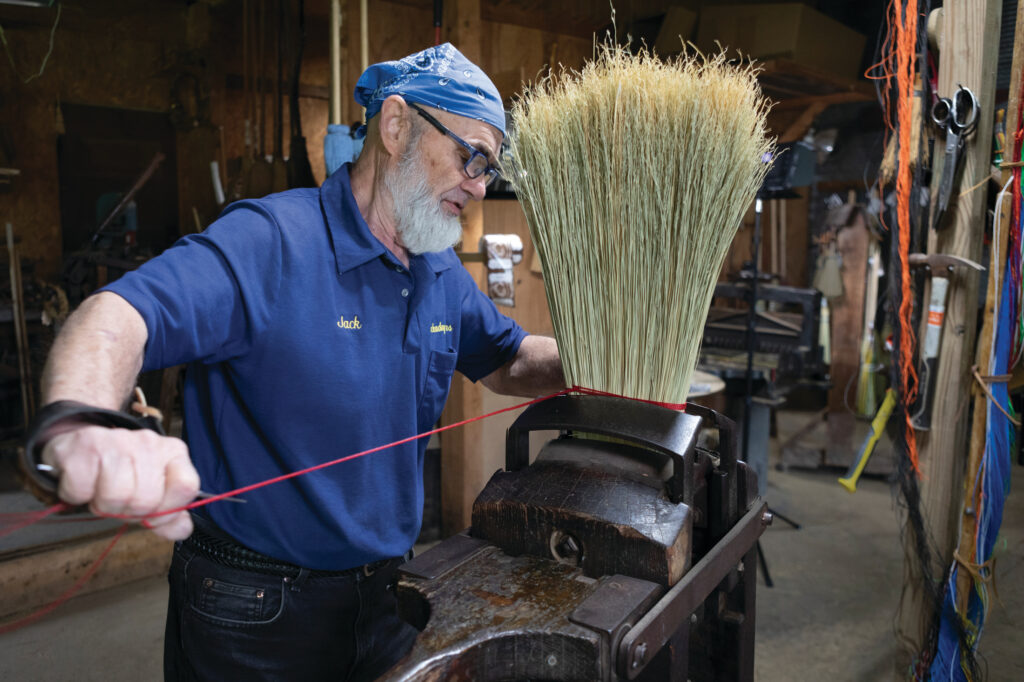Jack Martin grew up on a family farm outside Selmer, property that had been in his family since the Civil War. His great-grandfather, Will Hockaday, grew broomcorn in the summer months and made brooms in the winter, selling them to friends for 25 cents after they’d given him an old mop handle to get started.
Hockaday once saw in the newspaper a photo of broom-making machinery, the kind that attaches the broomcorn to the wood handle, and built his own “broom-wrapping table” from old farm equipment and a broom press to flatten out the finished product. Broom-making became a Hockaday family tradition.
Martin never considered much of his family’s broom-making business until he met his future wife, singer Dee Fisk. He had been working offshore, and the two met through music, he a “beer-joint drummer” and she a blues singer for musicians such as John Mayall, Joe Cocker, Jeff Beck and Greg Allman. They fell in love, and Martin invited her back to his Tennessee homestead.
“We pulled into the driveway, and every aunt and uncle and cousin was there,” Martin remembers with a laugh. “They shoved me out the door and pulled her in.”
When Martin gave Fisk a tour of the family’s broom shed, her comments changed his life.
“She looked at the equipment, and she gets this funny look,” Martin says. “She said, ‘Do you know what you have here? You have folk art.’”
The two, while continuing to tour with their music, began carrying on the family broom-making tradition that’s known today as Hockaday Brooms.
“The business really started at that point,” Martin says of following in his ancestor’s craft. “None of it would have happened without her.”
Fisk passed away in 2016, and you can still hear the pain in Martin’s voice when he discusses their life together. But he credits his broom-making success — he creates about 12 brooms a day and ships them nationwide — to his wife.
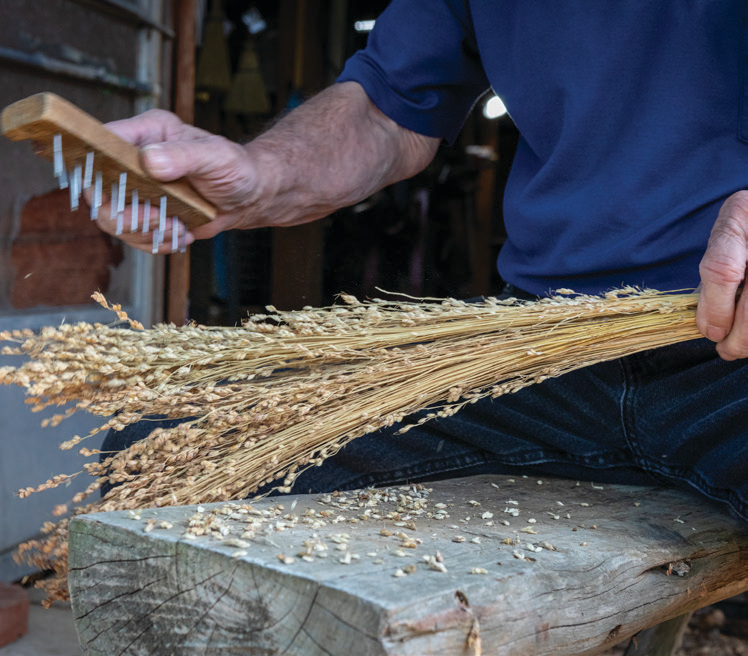
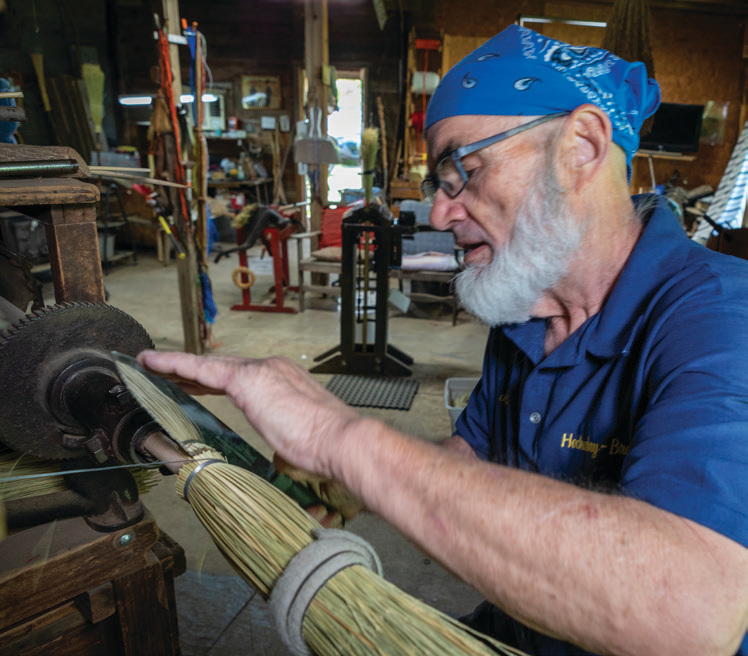
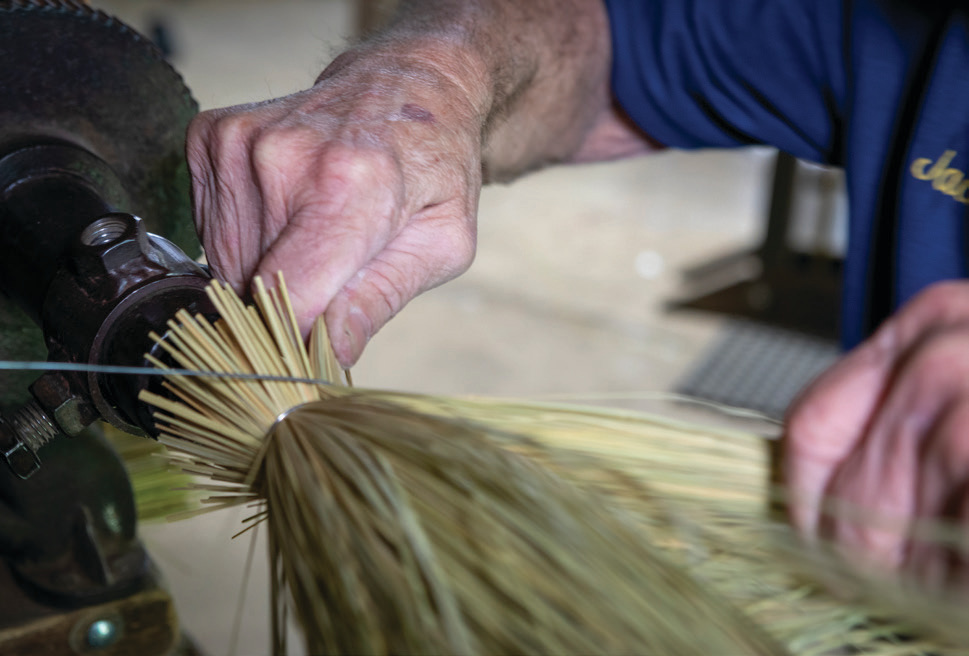
Hockaday broom-making history
The Hockaday family worked the Selmer farm for years, raising corn, cotton and livestock, but it was Will Hockaday who saw broom-making as a skill for earning extra money. The family routinely created utilitarian items on the farm using skills such as woodcarving and chair-caning, so broom-making seemed natural.
Hockaday grew the broomcorn and sold his creations at the turn of the 20th century, and he passed the skill along to his son, Jack Hockaday. Like his father, Jack Hockaday would grow broomcorn in summer and sell brooms in winter to earn extra money or to trade for items the family needed such as seeds for planting and clothes. Jack’s daughter, Mildred, married Lester Martin, and their son, Jack Martin, learned the trade from his grandfather.
But Jack Martin never considered doing the craft himself.
Until he met Fisk.
Jack Martin and Dee Fisk, whom Jack nicknamed “Baby Doll,” moved to Selmer and the family farm. They established a broom shop out of the farm’s tractor shed that Martin’s father had built.
“The next day, she was in her jeans and working in the shop,” Martin says.
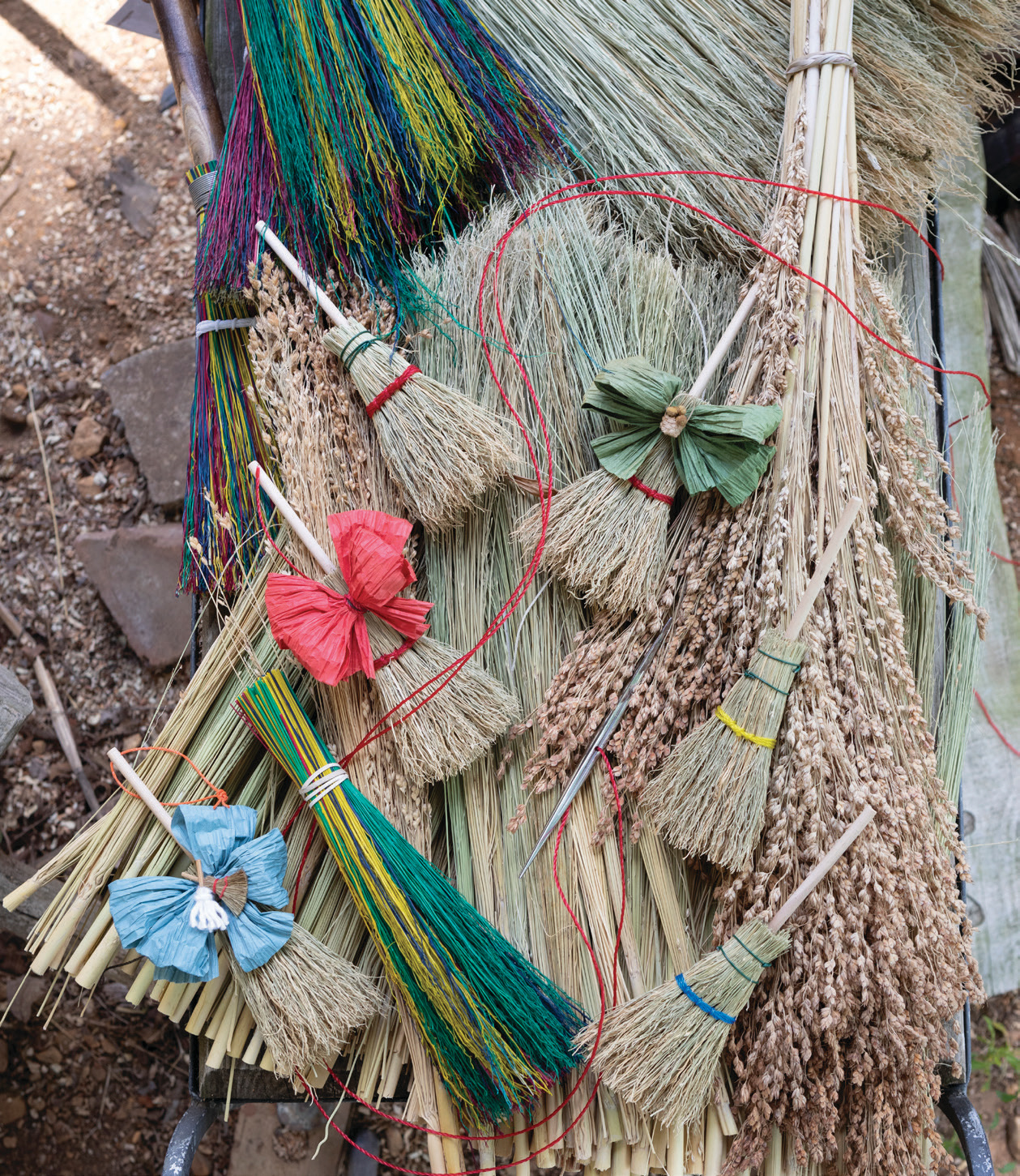
Like Martin’s ancestors, the couple grew broomcorn in summer and sold brooms from the farm and while traveling in their music careers. They would work craft shows and festivals and give demonstrations at museums and historic homes; they performed at the 1996 Olympics in Atlanta.
“We’ve been everywhere,” Martin says.
For 20 years, the couple demonstrated broom-making at West Tennessee elementary and middle schools, driving sometimes as far as four hours to visit a school. They would work five one-hour shows a day.
“We loved it because we talked to so many kids, many who didn’t know what our ancestors did,” Martin says. “I loved doing it.”
The couple also started the Broomcorn Festival that ran for 20 years in downtown Selmer, rain or shine, with 20 to 30 folk art vendors. The festival has ceased, but Martin still helps put on a music event the third Saturday in September that features music genres such as gospel, rock and folk in Selmer’s Rockabilly Park.
Making brooms
Broomcorn, also known as broom straw, is a grass plant that produces a long strand of straw from the top of the plant much like an ear of corn would on corn stalks. Martin picks the straw from the plant when it’s green and the stalk stands straight.
“You then have a nice, long, straight broomcorn,” he says.
Only one straw piece grows from each plant, so it takes 200 plants to make a 2-pound broom.
“It makes a nice, heavy-duty sweeper broom,” Martin says.
He plants two crops a year if the weather cooperates — first in the spring and another around the Fourth of July.
First, Martin bundles the straw in his shop using one of his many broom-making machines — he collects them — then wraps the bundle by rotating the broomcorn onto a handle. Some broom handles are plain and straight while others might be curvy. Occasionally, Martin carves images onto the broom handle or incorporates different school colors — such as orange for the University of Tennessee.
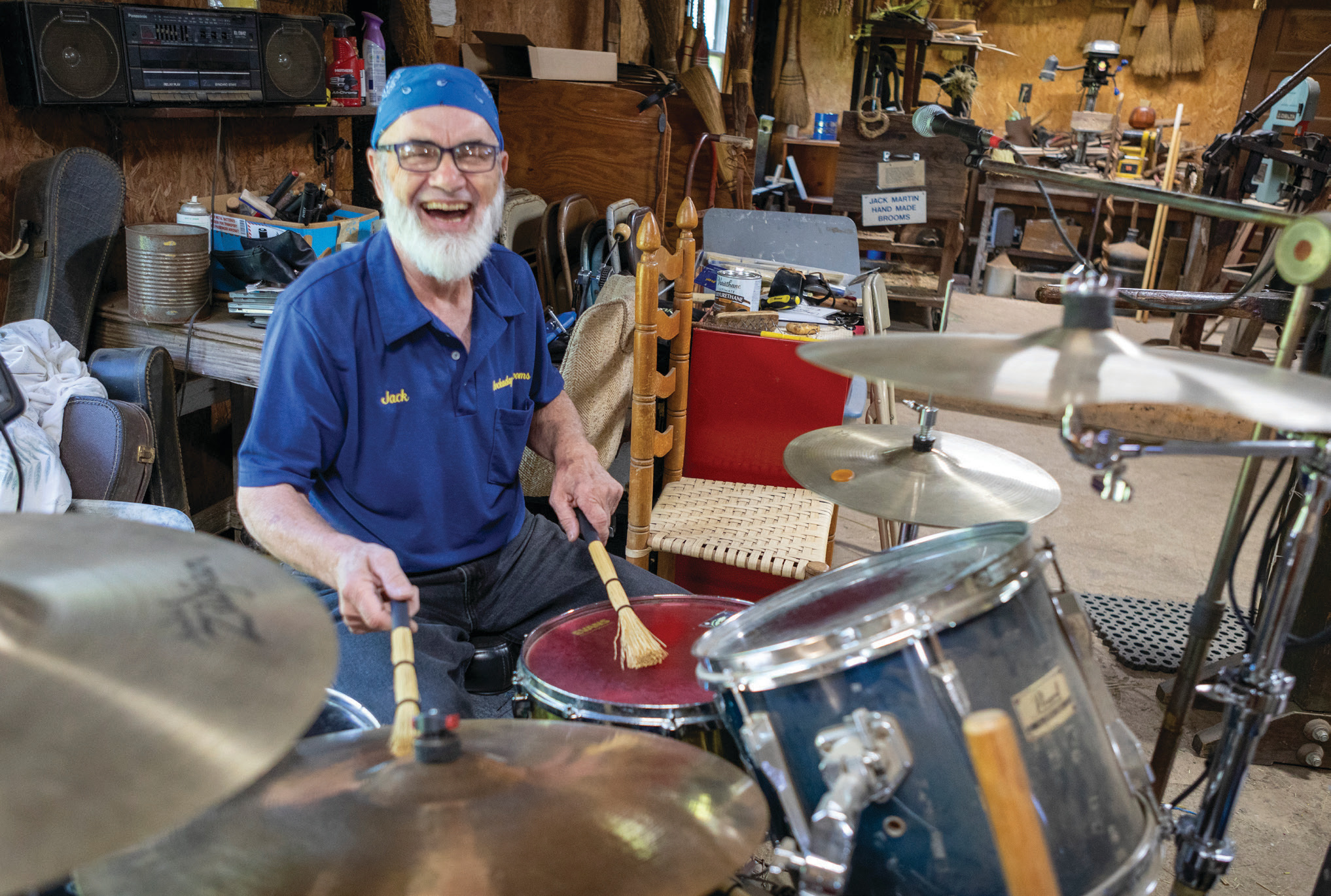

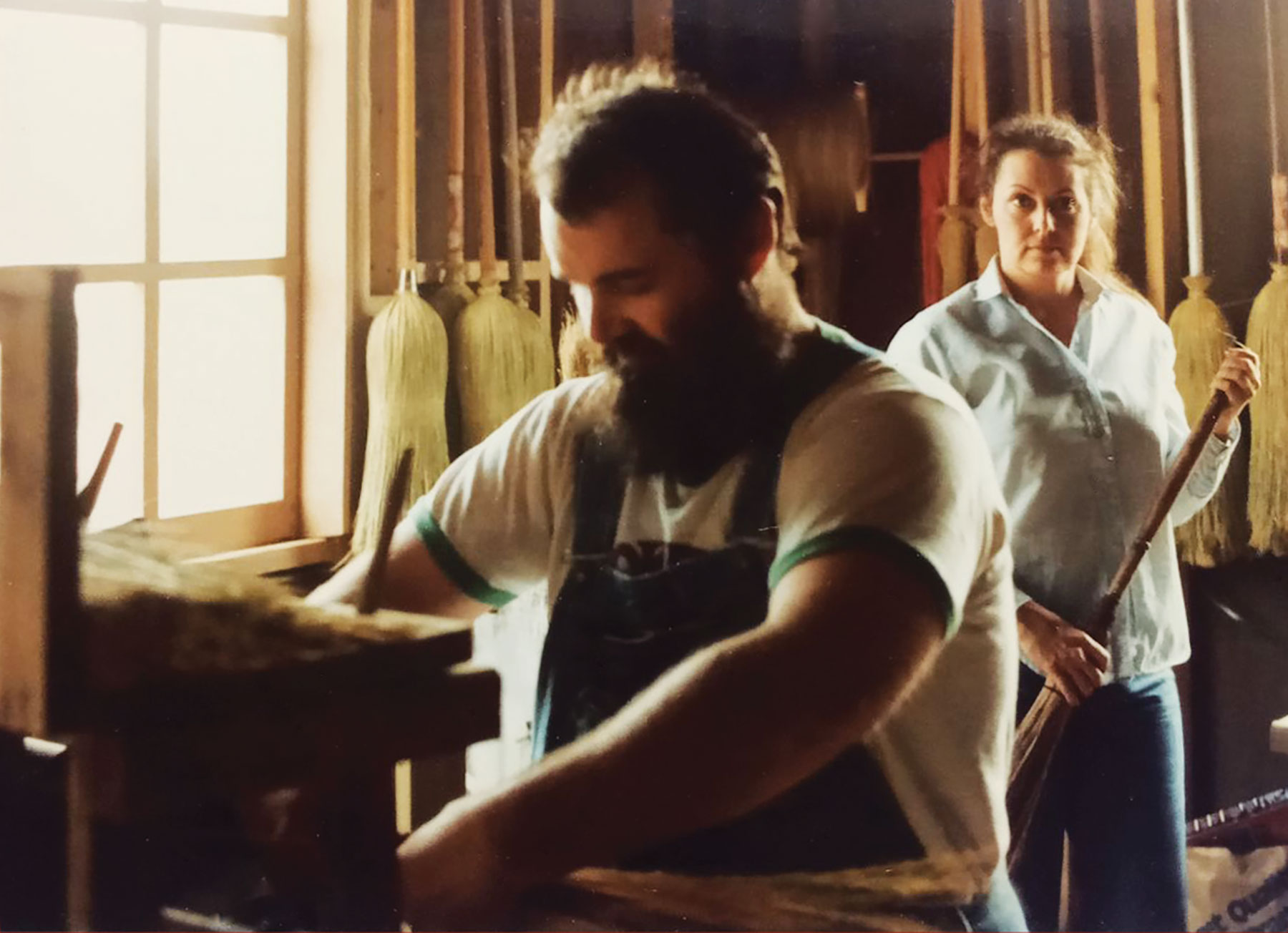
He then mashes the broom from a round to a flat shape.
“Every broom starts out round,” Martin explains, adding that some of the brooms he sells are round, especially at Halloween to mimic a witch’s broom.
The final step in the process is stitching the broom together using a 7-inch needle.
In addition to his Shaker sweeper brooms, Martin creates rainbow brooms after dyeing the straw different colors. He creates cotton mops as well.
He sells the brooms through his shop during weekdays or by special arrangement and will ship to the lower 48 states in extra-large boxes to protect his creations.
“A lot of folks drive out here because I’m usually here five days a week,” he says.
The next generation
Martin’s grandchildren grew up watching him create brooms, and all have learned some aspect of the business, he says. Whether they continue the Hockaday tradition is yet to be seen, but Martin is hopeful.
He also teaches broom-making through the Tennessee Arts Commission in a master apprenticeship program where a student works with him in his shop for six months, graduating with a public demonstration to show off the skills he or she has learned.
It’s all part of passing on a long-standing Tennessee tradition.
“That’s what Baby Doll was firm about,” Martin says of his wife, “that you have to share your art.”
And they have.
“We had a great life — and I’m still having it.”



